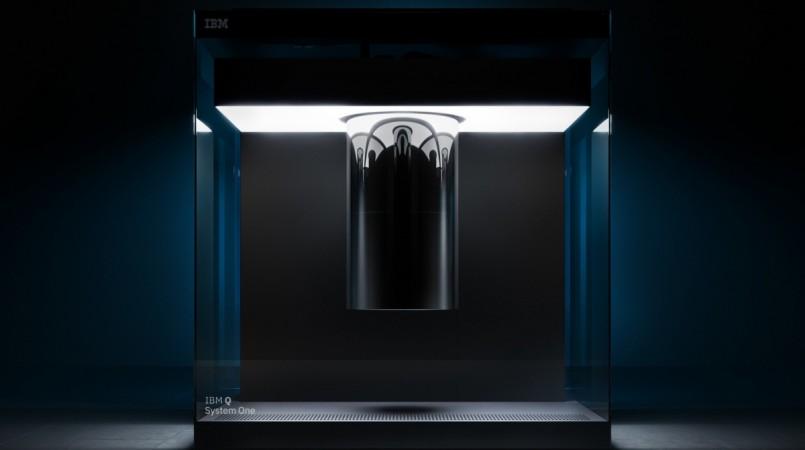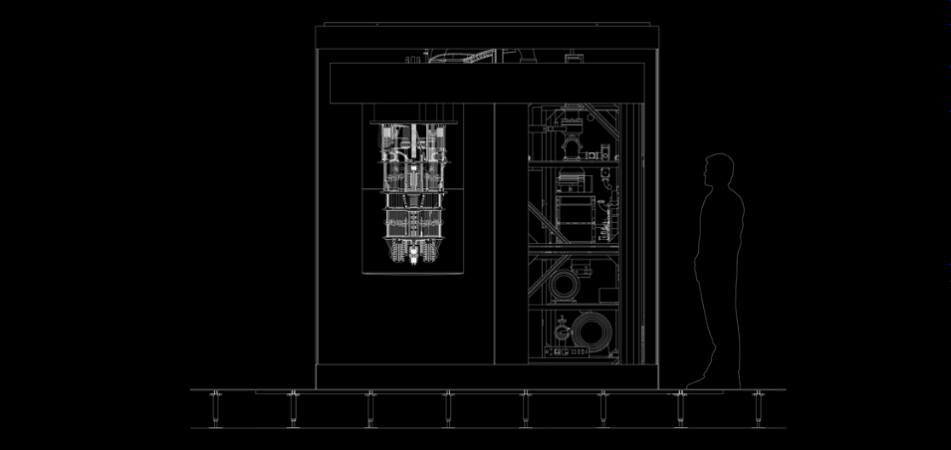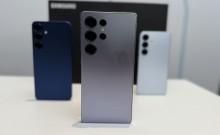
- IBM Q System One is the first quantum computer to leave research labs
- IBM Q System One quantum computer sits safely inside a 9ft tall, 9ft wide glass cas
- IBM Q System One quantum computer's display case is same as the one protecting Mona Lisa at the Louvre, and the Crown Jewels at the Tower of London
- IBM plans to open first IBM Q Quantum Computation Center for commercial clients in Poughkeepsie, New York, this year
For so long, the quantum computer was merely a fantasy but the race to build the world's first quantum computer gave scientists the motivation build the most powerful and advanced computer that puts even the best ones to shame. IBM has bet a lot on this futuristic technology and time and again shared its progress in the field of quantum computing. But the systems company created history at the CES 2019 floor on Jan. 8, 2019.
IBM unveiled the world's first standalone quantum computer – the IBM Q System One – which is an architectural marvel yet powerful enough to leave the best supercomputers in the dust. This is a historical step in the field of quantum computing, considering the fact that quantum computers haven't left the confines of a research lab.
Looking at IBM's Q System One strengthens faith in commercial availability of quantum computers. On that note, IBM has announced the first step where it is planning to open first IBM Q Quantum Computation Center for commercial clients in Poughkeepsie, New York, later this year. The IT giant also sees future where it will be selling such systems in the form of renting access to the hardware over the internet instead of shipping the quantum computer itself.
The Consumer Electronics Show floor is abuzz with the talk about IBM's standalone quantum computer. Usually, quantum computers are carefully preserved in research labs, where various elements such as reinforced chambers, tanks of liquid helium, cryogenic equipment and hundreds of yards of cabling, the Financial Times reported.
IBM managed to shed all that and build a compact beautiful piece-of-art that rests inside a 9-foot tall, 9-foot wide half-inch borosilicate glass case. This airtight enclosure helps control the temperature and ensure continuous use of Q System One quantum computer, which is ideal for businesses.

"This integrated system aims to address one of the most challenging aspects of quantum computing: continuously maintaining the quality of qubits used to perform quantum computations. Powerful yet delicate, qubits quickly lose their special quantum properties, typically within 100 microseconds (for state-of-the-art superconducting qubits), due in part to the interconnected machinery's ambient noise of vibrations, temperature fluctuations, and electromagnetic waves. Protection from this interference is one of many reasons why quantum computers and their components require careful engineering and isolation," IBM said in a statement.
IBM also notes that the airtight enclosure housing the Q System One quantum computer opens effortlessly, which means maintenance and upgrades shouldn't warrant extended downtime.
IBM Q System One is made up of several custom-made components that help the system deliver "most advanced cloud-based quantum computing program available." It includes quantum hardware design for repeatable and predictable high-quality qubits (or quantum bits), cryogenic engineering to maintain cold temperature and an isolated environment, high-precision electronics to control large numbers of qubits, and secure cloud access alongside hybrid execution of quantum algorithms.









